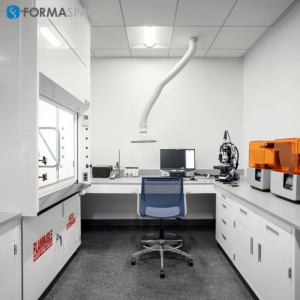Lecanemab Mark a Turning Point in Alzheimer’s Treatment
The FDA has approved a new Alzheimer’s Disease therapy - Lecanemab. Find out more in this Formaspace Laboratory report.
Lecanemab belongs to a class of monoclonal antibody clinical therapies that researchers hope will be able to prevent or even reverse the decline of Alzheimer’s patients.”
AUSTIN, TEXAS, UNITED STATES, April 19, 2023/EINPresswire.com/ -- Optimism Prevailed At The 2022 Clinical Trials On Alzheimer’s Disease Conference (CTAD) In San Francisco— Formaspace
There was renewed optimism about a new monoclonal antibody (mAb) treatment at the 15th Annual Clinical Trials of Alzheimer’s Disease Conference (CTAD) held in San Francisco during the final weeks of 2022.
The good news was a welcome change from the disappointment stemming from the rollout of an earlier mAb drug for Alzheimer’s disease, Aducanumab (brand name Aduhelm), which, after a controversial conditional FDA approval in 2021, failed to find acceptance in the market due to its limited efficacy (and high prescription cost) and was ultimately withdrawn by its manufacturer Biogen.
In contrast to Aducanumab, the new drug, Lecanemab, demonstrated a clear-cut clinical benefit, reducing the decline of cognitive thinking and memory loss of Alzheimer’s test subjects by 27% over an 18-month timeframe.
Lecanemab Is A Monoclonal Antibody (MAb) Derived From Mice That Helps Prevent Amyloid Beta Buildup In The Brain
While the cause (or causes) of Alzheimer’s is not fully understood,* one of the leading theories, called the amyloid hypothesis, focuses on the formation of amyloid–β (beta) plaques in the brain. This plaque buildup is thought to compromise memory and cognitive functions.
(*For more detailed information, please see our report outlining the possible causes of Alzheimer’s Disease published in May 2022, including the phosphorylation of tau, which helps produce neurofibrillary tangles that disrupt memory cells, as well as possible connections to diabetes and autoimmune diseases.)
Like Aducanumab before it, the new drug, Lecanemab, belongs to a class of monoclonal antibody (mab) clinical therapies that researchers hope will be able to reduce the accumulation of amyloid–β in the brain and prevent or even reverse the decline of Alzheimer’s patients.
Lecanemab is a humanized monoclonal antibody (mAb158) derived from mouse antibody cells in the laboratory. Its chemical protein formula is:
C6544H10088N1744O2032S46
In animal studies, mAb158 was able to inhibit the growth of amyloid–β protofibrils (early-stage fibrils) and amyloid–β deposits (plaques).
The Results Of The Lecanemab “Clarity-AD” Clinical Trial Published In The New England Journal Of Medicine (NEJM)
The drug’s developer, Eisai, and collaboration partner, Biogen, announced the results of their Phase III trial (dubbed Clarity-AD) at the 2022 Clinical Trials on Alzheimer’s Disease Conference (CTAD). The results were subsequently published in the New England Journal of Medicine (NEJM).
The 18-month-long Clarity-AD study enrolled 1795 participants with mild cognitive impairment and/or dementia as well as the presence of amyloid–β buildup in the brain –confirmed either via positron emission tomography (PET) scan or cerebrospinal fluid testing.)
In the double-blind study, those receiving intravenous doses of Lecanemab (10 milligram/kilogram every two weeks) had a significant reduction of amyloid–β plaque compared to their initial baseline. (There was no change among those trial participants receiving a placebo.)
Read more...
Julia Solodovnikova
Formaspace
+1 800-251-1505
email us here
Visit us on social media:
Facebook
Twitter
LinkedIn



